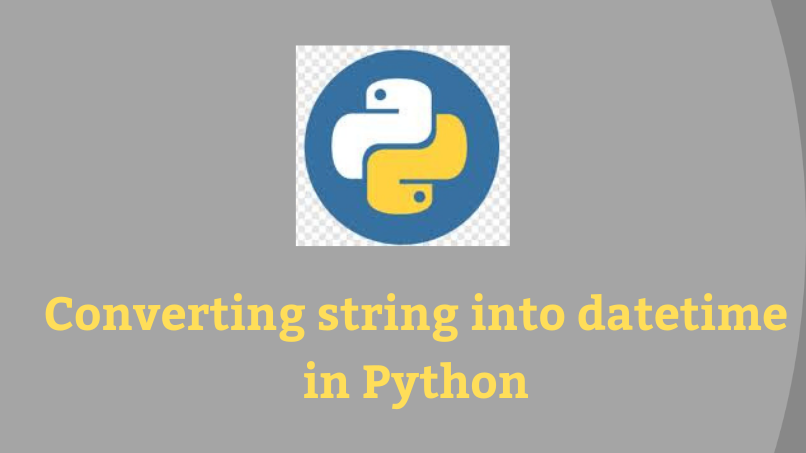
Converting string into datetime in Python
We can convert a string representation of date and time into a date object using the two methods mentioned below
- Using datetime module
- Using dateutil module
Using the datetime module:
We import a datetime class named datetime from the datetime module. We use this class to call the strptime() method. The strptime() method creates a datetime object from the given string.
Note: We cannot create a datetime object from every string. The string needs to be in a certain format.
This method takes two arguments
- string which represents date and time
- format code
The most frequently used format codes are
- %d which represents the day of the month.
Example: 01, 02, …, 31
- %B which represents the complete month’s name .
Example: January, February etc.
- %Y which represents the year that is four digits long.
Example: 2018, 2019 etc.
- %I which represents 12 hour clock as a zero padded decimal
Example:01, 02, …, 12
- %p which represents whether it’s AM or PM.
- %M which represents minutes as a zero-padded decimal.
Example:01, 02, …, 59
Example:
from datetime import datetime date_time_string = "Aug 15 2021 12:45PM" datetime_object = datetime.strptime(date_time_string, '%b %d %Y %I:%M%p') print(type(datetime_object)) print(datetime_object)
Output:

Using the dateutil module:
From the dateutil module we import the parser class using which we call the parser() class method. We only pass one parameter which is the string.
Example:
from dateutil import parser
date_time = parser.parser("Aug 15 2021 12:45PM")
print(date_time)
print(type(date_time))Output:




